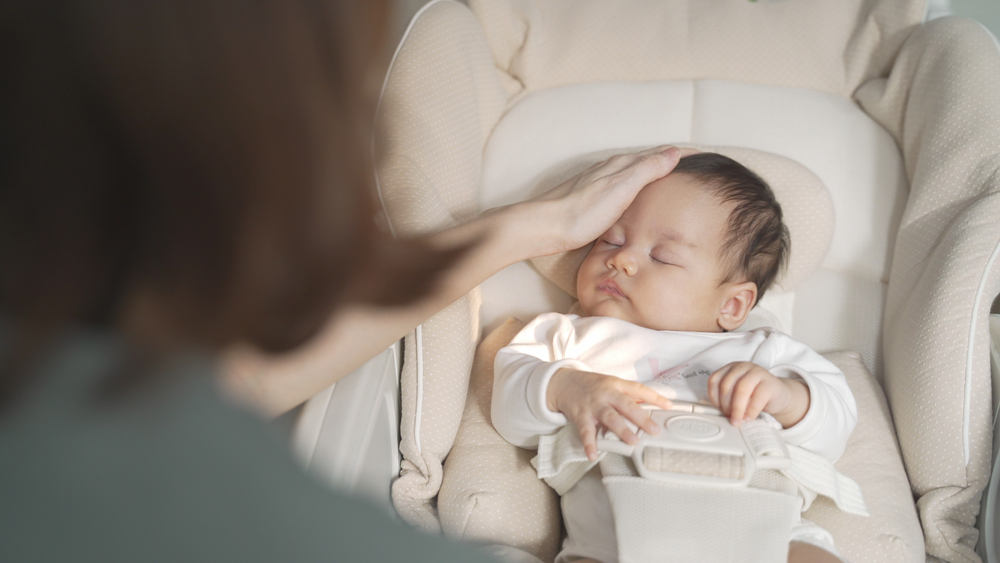Most family disagreements fade over time—but sometimes, a name can split relatives right down the middle. One couple recently found themselves in a bizarre and emotional standoff after giving their newborn daughter a name they both loved. Instead of celebrating, the grandparents responded by choosing their own name for the baby, using it in conversation, social media, and family gatherings. What unfolded was more than just a difference in taste—it became a full-blown identity crisis, raising questions about boundaries, respect, and control in multigenerational families.
The Name That Sparked a Family Rift

A name is often the first gift a parent gives their child, and for one young couple, it was a deeply personal choice. They spent months picking something that felt meaningful, unique, and beautiful. But shortly after their daughter was born, the husband’s parents reacted with silence. Then came the shock—without asking, they began calling the baby a different name entirely. It wasn’t a nickname or a variation. It was a full replacement, something more old-fashioned that they personally preferred. At first, the couple thought it might be a joke. But when relatives started calling the baby by the wrong name too, it became clear this was no misunderstanding.
When Personal Preference Crosses a Line

The grandparents insisted the chosen name “just didn’t feel right” to them. They claimed the new name rolled off the tongue more easily and better fit the baby’s “vibe.” They started using it in conversation, on social media, and even introduced her that way to others. The couple found out when mutual friends congratulated them on the birth of “Eliza,” a name they never picked. When confronted, the grandparents defended their actions. They said the original name was too trendy and wouldn’t age well. But for the parents, it wasn’t about trends—it was about respect. The baby already had a name, and it wasn’t anyone else’s place to change it.
Read More: “My friend’s grandparents passed and he grabbed these, but has no idea what they are”
Why Some Grandparents Feel Entitled

It’s not uncommon for grandparents to weigh in on a baby’s name. But actively using another name without permission is something else entirely. According to family psychologists, this kind of behavior often stems from control, nostalgia, or unresolved family dynamics. Some grandparents believe their wisdom gives them the right to “correct” what they view as poor choices. Others see naming as a way to preserve family heritage or cultural identity. While these intentions may not be malicious, the delivery matters. Ignoring the parents’ decision communicates one thing clearly: your choice doesn’t matter to us.
The Parents Put Their Foot Down

Eventually, the couple had enough. They sat the grandparents down and explained how deeply upsetting it was. They made it clear that this wasn’t just about a name—it was about their role as parents being undermined. The grandparents, however, doubled down. They argued that it was “just a name” and accused the couple of being overly sensitive. That’s when the parents decided to set firmer boundaries. They said until the grandparents could respect their daughter’s real name, they would be limiting visits and removing their access to family photos online. It wasn’t easy, but it sent a clear message: respect our choices, or lose access.
Identity Confusion Starts Early

Child development experts warn that consistent use of multiple names can confuse young children. A name helps form identity—it’s a child’s first marker of selfhood. Being called different names by different family members can disrupt that sense of stability and belonging. In this case, the baby was still too young to understand, but the parents feared long-term effects if the behavior continued. A child needs consistency, especially when forming relationships with caregivers. Using the wrong name, especially with intent, can create emotional tension that only grows as the child becomes more aware.
Social Media Weighs In

When the couple shared their story online, they didn’t expect the reaction it received. Thousands of people weighed in on parenting forums, Reddit threads, and parenting blogs. Most users sided with the parents, calling the grandparents’ behavior selfish and boundary-breaking. Some shared similar experiences and how they dealt with name sabotage in their families. Others said it was a sign of deeper control issues and advised the couple to protect their family space fiercely. While a few users said the situation could be resolved with compromise, the overwhelming consensus was clear: no one has the right to rename your child without your consent.
Tradition vs Autonomy

This issue reveals a bigger generational clash. Many grandparents grew up in times when family naming conventions followed tradition—naming children after elders, biblical figures, or long-standing family names. But modern parents often prioritize individuality, creativity, and personal significance. This can lead to tension, especially if the older generation feels that new names sound “weird,” “made-up,” or “unfamiliar.” But parenting today also includes more awareness of boundaries, autonomy, and emotional development. Younger generations are more likely to set firm lines and expect them to be respected, even by family. That’s a hard adjustment for some, but a necessary one if healthy relationships are to thrive.
Can This Relationship Be Repaired?

There’s still a path to healing, but it depends on willingness from both sides. The grandparents must first recognize that renaming the baby was inappropriate and caused emotional harm. Apologies are important, but action matters more. They need to consistently use the chosen name and stop referring to the baby by anything else. The parents, if they see real change, may slowly rebuild trust. But without this acknowledgment, the damage will linger. Family therapy could help if both parties are open to it. In the end, the child’s well-being should remain the priority—not anyone’s preference or pride.
Final Thoughts

What might seem like “just a name” to some can represent so much more to others. In this case, a single decision unraveled trust, triggered deep emotions, and forced two generations to face the need for clear boundaries. Grandparents can play a beautiful, supportive role—but that starts with respect. A name is part of a child’s identity, and parents deserve to have that honored. If families want to grow stronger, it starts with listening, not renaming.
Read More: Wholesome Reasons Why Every Child Needs Their Grandparents

